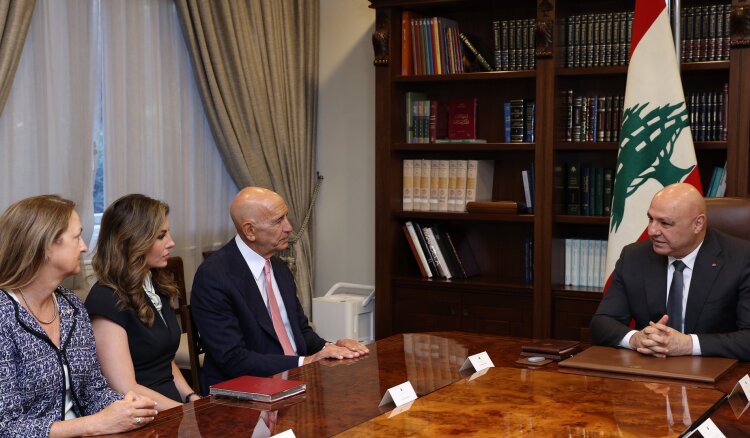Will Chapter VII be imposed on southern Lebanon?

BEIRUT — The U.S. envoys Thomas Barrack and Morgan Ortagus have arrived in Beirut once again to intensify pressure on the top Lebanese officials and put national peace at risk.
An informed source affirmed to Tehran Times that Washington and Tel Aviv have agreed to renew UNIFIL’s mandate in southern Lebanon at the end of this month for a final one-year term.
The source notes that the renewal decision will carry an escalatory and highly charged tone as UNIFIL will be granted new powers under strict conditions similar to those granted under Chapter VII of the UN Charter, which allows it to disarm the Resistance by force by conducting raids, arresting citizens; setting up checkpoints, etc.
Following the liberation of the south in 2000, the Security Council renewed UNIFIL’s mandate for only six months, reducing its strength from approximately 11,000 troops to approximately 2,000, before reinforcing it following Israel’s aggression of Lebanon on July 2006.
If the renewal is decided by the end of next month, the expansion of UNIFIL’s powers, particularly freedom of movement without coordination with the Lebanese Army, will become a reality, according to the source.
At a time when the manifestations of U.S.-Saudi tutelage over the south are intensifying, the Israeli occupation forces continue their daily attacks. These attacks, which have become routine, don’t elicit any reaction from Nawaf Salam’s government or the committee supervising the implementation of Resolution 1701.
Since Italian General Diodato Abagnara assumed the UNIFIL command, its leadership has been almost completely absent from the field. This absence, or deliberate omission, does not apply to all components of the international force. The French contingent appears to be remarkably active, without coordination with the Lebanese Army.
Members of the French contingent conduct incursions into valleys and forests in various areas south of the Litani almost daily without any army escort, raising questions about the nature of its mission and the limits of its powers.
Last week, the French Chargé d'Affaires in Beirut, Bruno Pereira da Silva, met with Foreign Minister Youssef Rajji to discuss the extension of UNIFIL mandate.
The Ceasefire Supervision Committee also held an emergency meeting (the first since June 26) in light of the Lebanese government's decision to disarm the Resistance and the suspicious explosion in Wadi Zebqin, which claimed the lives of six Lebanese Army soldiers.
During the meeting, the Lebanese Army did not receive any serious answers regarding its requests to strengthen its presence at the southern border posts.
The Israeli army delegation spoke in an arrogant tone, refusing to discuss the issue of its withdrawal from the occupied and buffer zones or allowing the Lebanese army to be deployed on the border.
Reportedly, the enemy’s delegation stated that Tel Aviv “is not obligated to listen to any Lebanese demands until the Lebanese Army completes its plan to disarm Hezbollah.”
In light of this Israeli intransigence, the Lebanese Army is under increasing pressure from the Supervision Committee, which only assigns it the task of dismantling Hezbollah’s facilities.
The informed source told Tehran Times that there has been no official announcement so far regarding the arrival date of UNIFIL, which has consistently sent a technical delegation to assess the mission before each renewal.
During meeting, the committee's vice chair, French General Valentin Cellier, reiterated the French unit’s commitment to submitting a report explaining the actions of its personnel in Zebqine before handing it over to the Lebanese Army.
The informed source says Washington and the UNIFIL leadership have often criticized Paris for its independent conduct of operations from the Naqoura command.
Meanwhile, the martyrdom of six Lebanese soldiers on August 10 has increased the people’s resentment toward UNIFIL, whose soldiers deliberately push Lebanese army personnel into dangerous missions.
Obviously, renewing the UNIFIL mandate cannot be separated from the field and political developments witnessed in Lebanon since the Salam government’s approval of US envoy Thomas Barrack’s plan to hand over Hezbollah’s weapons to the state within a specific timetable.
